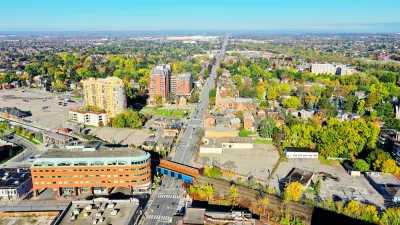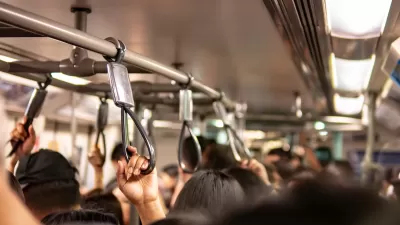The recession has made many commuters more transit-dependent while shrinking the public coffers that may for the bulk of transit service. Without further subsidies, agencies face tough choices because of this "incredible paradox."
"Between volatile fuel prices, a sea change in public attitudes towards the environment, and the enormity of the world's financial collapse, the nation's transit agencies have appeared more like amusement parks in the past year, riding a roller coaster of increased demand, increased cost and uncertain financial futures. But as the sobriety of 2009 has set in, this wild ride eased into a new reality: deficits, fare increases and cost-cutting strategies that are ushering in a new age of austerity that rivals any crisis that American public transit has ever experienced."
"Were the nation's transit agencies true businesses, many would have by now gone bankrupt. Eighty percent of the nation's transit agencies have reported declining operating budgets. Estimated annual operating deficits projected for 2009 treat millions like pocket change: $230 million for Los Angeles Metro, $160 million for Boston's Massachusetts Bay Transportation Authority, $200 million in Chicago, $100 million in San Francisco and $57 million in Atlanta. St. Louis Metro's $46 million deficit represents 21 percent of its operating budget."
Thanks to Josh Stephens
FULL STORY: Mass Transit’s Reversal of Fortune

Planetizen Federal Action Tracker
A weekly monitor of how Trump’s orders and actions are impacting planners and planning in America.

Maui's Vacation Rental Debate Turns Ugly
Verbal attacks, misinformation campaigns and fistfights plague a high-stakes debate to convert thousands of vacation rentals into long-term housing.

San Francisco Suspends Traffic Calming Amidst Record Deaths
Citing “a challenging fiscal landscape,” the city will cease the program on the heels of 42 traffic deaths, including 24 pedestrians.

Amtrak Rolls Out New Orleans to Alabama “Mardi Gras” Train
The new service will operate morning and evening departures between Mobile and New Orleans.

The Subversive Car-Free Guide to Trump's Great American Road Trip
Car-free ways to access Chicagoland’s best tourist attractions.

San Antonio and Austin are Fusing Into one Massive Megaregion
The region spanning the two central Texas cities is growing fast, posing challenges for local infrastructure and water supplies.
Urban Design for Planners 1: Software Tools
This six-course series explores essential urban design concepts using open source software and equips planners with the tools they need to participate fully in the urban design process.
Planning for Universal Design
Learn the tools for implementing Universal Design in planning regulations.
Heyer Gruel & Associates PA
JM Goldson LLC
Custer County Colorado
City of Camden Redevelopment Agency
City of Astoria
Transportation Research & Education Center (TREC) at Portland State University
Jefferson Parish Government
Camden Redevelopment Agency
City of Claremont





























